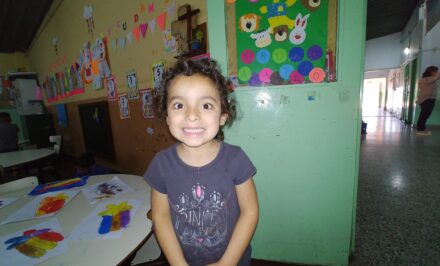 org. We publish sentences of Pope Francis every Monday (or Thursday, this time. ..) as the “Door to the Week”, so that they may accompany us every step of our pilgrim way in everyday life. These are statements made in the previous week, they are words that inspire us to increasingly become missionary pilgrims who live in solidarity, as poor, joyful, open and simple Pilgrims – in and with the Church – and ask for renewal in the genuine spirit of the covenant. Without humility there is neither effective service, nor genuine renewal. Actually it is very simple, because Pope Francis speaks about the grace of 2014. Let us pray for this grace.
org. We publish sentences of Pope Francis every Monday (or Thursday, this time. ..) as the “Door to the Week”, so that they may accompany us every step of our pilgrim way in everyday life. These are statements made in the previous week, they are words that inspire us to increasingly become missionary pilgrims who live in solidarity, as poor, joyful, open and simple Pilgrims – in and with the Church – and ask for renewal in the genuine spirit of the covenant. Without humility there is neither effective service, nor genuine renewal. Actually it is very simple, because Pope Francis speaks about the grace of 2014. Let us pray for this grace.
![]()
WEEK 32/2013

The love of God in Jesus always opens us up to hope, to that horizon of hope, to that ultimate horizon of our pilgrimage. In this way even our struggles and falls have a meaning. Our sins too have meaning in the love of God, be cause this love of God in Jesus Christ always forgives, it loves us so much that it always forgives us.
Angelus, 11 August (Zenit)
We can draw lessons for our Christian life from the history of this church. How many persons will have visited it to encounter the Lord! Its stones are silent witnesses of the many that have entered it to open their heart to God, to ask for forgiveness, to pray for favors, to praise and bless Him for all the love He manifests to us every day. Let us gather the best of that spiritual heritage and continue lifting our hearts to Heaven in this house, which is God’s, and that of all those who form the great diocesan family.
Message of Pope Francis for the 200th anniversary of the Cathedral of Mexico City (Zenit)
But it’s not just about looking back. An opportunity such as this one must become a strong spiritual stimulus to assume joyfully the great task that every baptized person has today to be a disciple and missionary of Jesus Christ. In the Cathedral, heart of the diocese, the Bishop carries out the most venerated and holy action that can be realized: the Eucharist, memorial of the Death, Passion and Resurrection of Our Lord. Let us participate in it with devotion and draw from the table of the Lord the strength to give witness everywhere of the love that God has for us, in every environment where we find ourselves and with all those around us, especially the most underprivileged.
Message – Mexico City Cathedral (Zenit)
Let us also assume the challenge of looking to the future with hope. Let no one rob us of hope! Let us nourish it, instead, by coming to the first diocesan church. The Word of Life that resounds in the Primate Cathedral of Mexico must be prolonged in the future; it must be rooted in the heart of children, of adolescents and of young people. They are an open window to hope and enthusiasm. We must give them the best that we have: Christ, Savior and Friend who never fails. This is the responsibility, first of all, of fathers and mothers of families, who have in the Christian education of their children the greatest commitment, of which they cannot tire, and which they must carry out not only trusting in their energies but, above all, supported by prayer.
Message – Mexico City Cathedral (Zenit)
The Christian is one who carries within himself a great desire, a profound desire: that of meeting with his Lord together with his brothers and sisters, with his companions on the road. And all of this that Jesus tells us is summed up in this well-known saying of his: Where your treasure is, there your heart is too (Luke 12:34). The heart that desires… But we all have a desire! How poor are those people who lack desire! The desire to go forward toward the horizon, and for us Christians this horizon is the encounter with Jesus, the real encounter with him, who is our life, our joy, what makes us happy. But I will ask you 2 questions. The first: Do all of you have a desiring heart, a hear that desires? Think and answer in silence and in your heart: Do you have a heart that desires, or do you have a closed heart, a heart that is asleep, a heart that is anesthetized against the things of life? The desire: to go forward to the enco unter with Jesus.
Angelus, 11 August (Zenit)
And the second question: Where is your treasure, that which you desire? Because Jesus told us: Where your treasure is, there your heart is too and I ask: Where is your treasure? What is the most important, most precious reality for you, the reality that pulls at my heart like a magnet? What pulls at your heart? Can I say that it is the love of God? Is there the will to do good to others, to live for the Lord and for our brothers? Can I say this? Everyone answers in his heart.
Angelus, 11 August (Zenit)
But someone might say to me: But, Father, I’m someone who works, who has a family. For me the most important thing is to move my family ahead, to get ahead in work… Of course, it is true, it is important. But what is the power that unites the family? It is precisely love, and God is the one who sows love in our hearts, the love of God: It is precisely the love of God that gives meaning to the little daily duties and also helps us face the great trials. This is mans true treasure. Going forward in life with love, with that love that the Lord sowed in the heart, with the love of God. And this is the true treasure.
But what is the love of God? It is not something vague, a generic sentiment. The love of God has a name and a face: Jesus Christ, Jesus. The love of God manifests itself in Jesus. Because we cannot love air… Do we love air? Do we love everything? No, it is not possible! We love persons, and the person whom we love is Jesus, the gift of the Father among us.
It is a love that gives value and beauty to everything else; a love that gives strength to the family, work, study, friendship, art, to every human activity. And it gives meaning even to negative experiences because this love allows us to go beyond these experiences, to go beyond, not to remain prisoners of evil, but makes us go beyond, it always opens us up to hope. So, the love of God in Jesus always opens us up to hope, to that horizon of hope, to that ultimate horizon of our pilgrimage. In this way even our struggles and falls have a meaning. Our sins too have meaning in the love of God, be cause this love of God in Jesus Christ always forgives, it loves us so much that it always forgives us.
Angelus, 11 August (Zenit)
See all texts in “Francis for the Pilgrims 2014”
![]()
The aim of the pilgrimage
is the renewal of the covenant of love
as a missionary and unifying creative force,
i.e. internally the renewal of the Schoenstatt Family
and externally the shaping of covenant culture.













